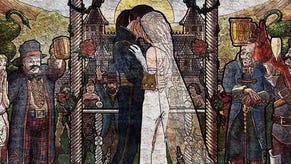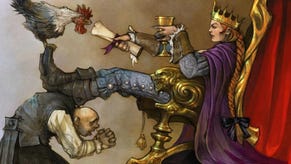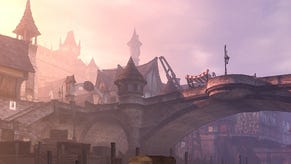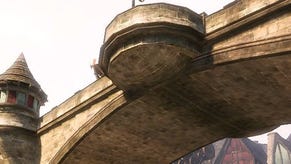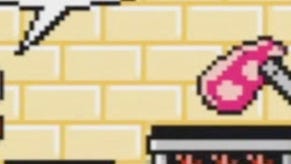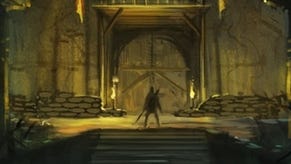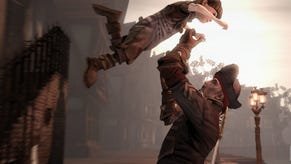Fable III
You rule.
"Our job at Lionhead is to surprise and shock you," says Peter Molyneux, kicking off his presentation of Fable III at Microsoft's X10 event in San Francisco. Does he shock us? Not quite. Does he surprise us? Absolutely.
We're surprised by some of the details: unique, morphing weapons that can be traded online, customisable magic based entirely on equipment, the removal of RPG staples like experience and a health bar, and the subtle reach of the Touch system, the emotional heart of the game. More than that, we're surprised at the extent - almost exponential - to which Lionhead is increasing Fable's scale and ambition while relentlessly pursuing an agenda of extreme simplicity and accessibility. Surprised, and very excited.
"More than half the people that played Fable II understood and used less than half the features in the game," Molyneux says, recalling an eye-opening piece of research that changed his whole approach to the sequel. "As soon as you see that you think, 'Oh my God, what a talentless bastard I really am'."
So the HUD fades away, the combat is ruthlessly simplified, and in a stunning move against the prevailing winds that have blown XP from RPGs into virtually every other genre in recent years, the whole concept of gaining experience which is spent on new abilities has been scrapped.
Instead, your hero's growth, your increasing power in the fantasy land of Albion, will be mainly represented by the number of followers he or she has. This (as well as being an amusing echo of Twitter mania) ties in with Fable III's theme and its narrative arc: the road to power, and what you do with it when you get it.

"I want you as a player to feel powerful, I want to give you the ability right all the wrongs in the world," Molyneux says. "I could just give you the normal story, the Hero's Journey. That's pretty much what every film, book and certainly game does - why is it always like that? If it's all about power, the problem is the end of [that story]. I want to feel like the bloke who defeated the bad guy."
The is a bad guy to defeat, naturally: Logan, a king whose tyrannical rule has turned Albion, the bucolic fantasy England of the first two Fable games, from a medieval idyll into an industrial nightmare.
Molyneux's colleague fires up the game and shows us scenes more reminiscent of Dickens and Lowry than Tolkien. We're in a city choked with grime and beggars, dominated by dark red-brick factories and workhouses with tall smoke-stacks. Our hero has a Napoleonic, piratical flavour, with a one-armed frock-coat, a tricorn hat and a cutlass on his back. It's 50 years after Fable II, and the industrial revolution has just arrived.
You will defeat Logan about halfway through the game - and for Molyneux, what happens next is what's most interesting. You'll defeat him by persuading the people of Albion to follow you and believe in you, which will give you the power to overthrow him - but to persuade them, you're going to have to promise "whatever it takes," he says.
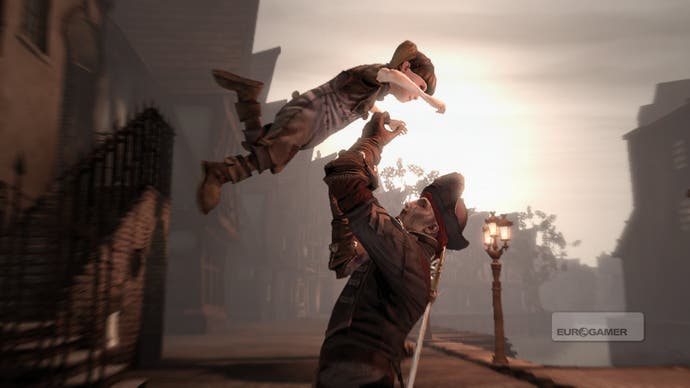
"You're going to promise to turn all the factories into schools - then when you're on the throne you're going to have to deliver those promises. Will you become worse than [Logan] or better than him?"
Molyneux doesn't elaborate on how ruling will work, whisking us on to the topic of Touch. Touch arose out of his dissatisfaction with Fable II's gimmicky expressions which, he felt, were ultimately only good for fart jokes. Touch is "your emotional connection with everything in the world". It might involve hitting someone or hugging them - but, in what Molyneux freely admits is a nod to ICO, its main expression is through holding hands.
His colleague demonstrates. The hero's wife asks him to find their lost daughter. He uses his dog companion to do this through a new system Molyneux actually calls "context-sensitive scenting", allowing the hound to track down people and things within the world. (A couple of other things have changed about the dog, apparently, but Molyneux won't say what.)
Child found, our hero scolds and then hugs her with Touch, before taking her hand and leading her back through the streets. She's still an independent AI character throughout this time, chatting away, commenting on and responding to the environment.
A darker example occurs when he leads a beggar who's defaulted on a debt to a factory to sell him, effectively, into slavery. Initially he confidently takes the player's hand, but as soon as they're through the factory gates he needs to be dragged kicking and screaming, saying that if he's left here he'll be dead in two weeks.


